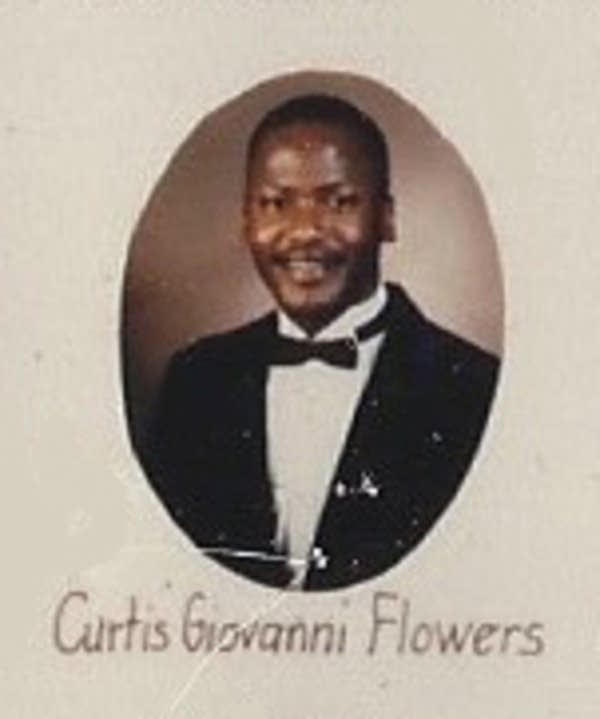Curtis Flowers has been tried six times for the same crime. For 21 years, Flowers has maintained his innocence. He's won appeal after appeal, but every time, the prosecutor just tries the case again. What does the evidence reveal? And how can the justice system ignore the prosecutor's record and keep Flowers on death row?
April 16, 2018
In February of last year, we got a tip. A woman in central Mississippi sent us an email about Curtis Flowers, a man on death row who she thought might be innocent. "The evidence is iffy at best," she wrote. "But the man didn't have a chance."
The evidence was so iffy, in fact, that Flowers' case had seen two mistrials and three convictions overturned on appeal. In all, he'd been tried six times for the same crime.
Right away we wondered how such a thing was even possible. To find out, our journalists moved to Mississippi and spent a year digging into the Curtis Flowers case. The story we uncovered became Season Two of In the Dark, an investigative podcast from APM Reports, which debuts May 1.
Flowers was convicted of quadruple murder in the small town of Winona. Prosecutors said that on the morning of July 16, 1996, he walked downtown and shot four employees at Tardy Furniture store. Then, they say, he walked home. Flowers had worked at Tardy for a few days that summer, and prosecutors alleged that he committed the murders as revenge for the owners' docking his paycheck.
At the first trial in 1997, it took the jury just 66 minutes to convict him. Flowers, a black man from a nearly half-black county, was sentenced to death by a jury that was all white.
That conviction was the beginning of a 21-year legal odyssey.

Flowers appealed his case to the Supreme Court of Mississippi, which overturned it, citing prosecutorial misconduct. Flowers was tried and convicted a second time by a nearly all-white jury. Again his conviction was appealed and overturned. Yet again the local prosecutor decided to retry Flowers. The conviction was overturned a third time, this time because the prosecutor had engaged in racial discrimination during jury selection. Two trials and two hung juries followed.
His most recent conviction, from 2010, has so far held up. The prosecutor remains certain Flowers is the killer.
Yet our investigation found that the case against Flowers is built on questionable and circumstantial evidence. No one saw him commit the crime. No DNA or fingerprints connect him to the scene. Many people in Winona, especially those in the town's large African-American community, continue to doubt his guilt.
We spent months digging through the investigative files, tracking down hundreds of people in hard-to-reach places (confronting pit bulls, potholes and pellet guns) and reading through thousands of pages of court records. The deeper we dug, the stranger the case became.
What we found is a story about unexamined leads, questionable evidence, fear and race. Most of all, though, it's a story about a man fighting for his life and a prosecutor who has spent two decades trying to execute him.
